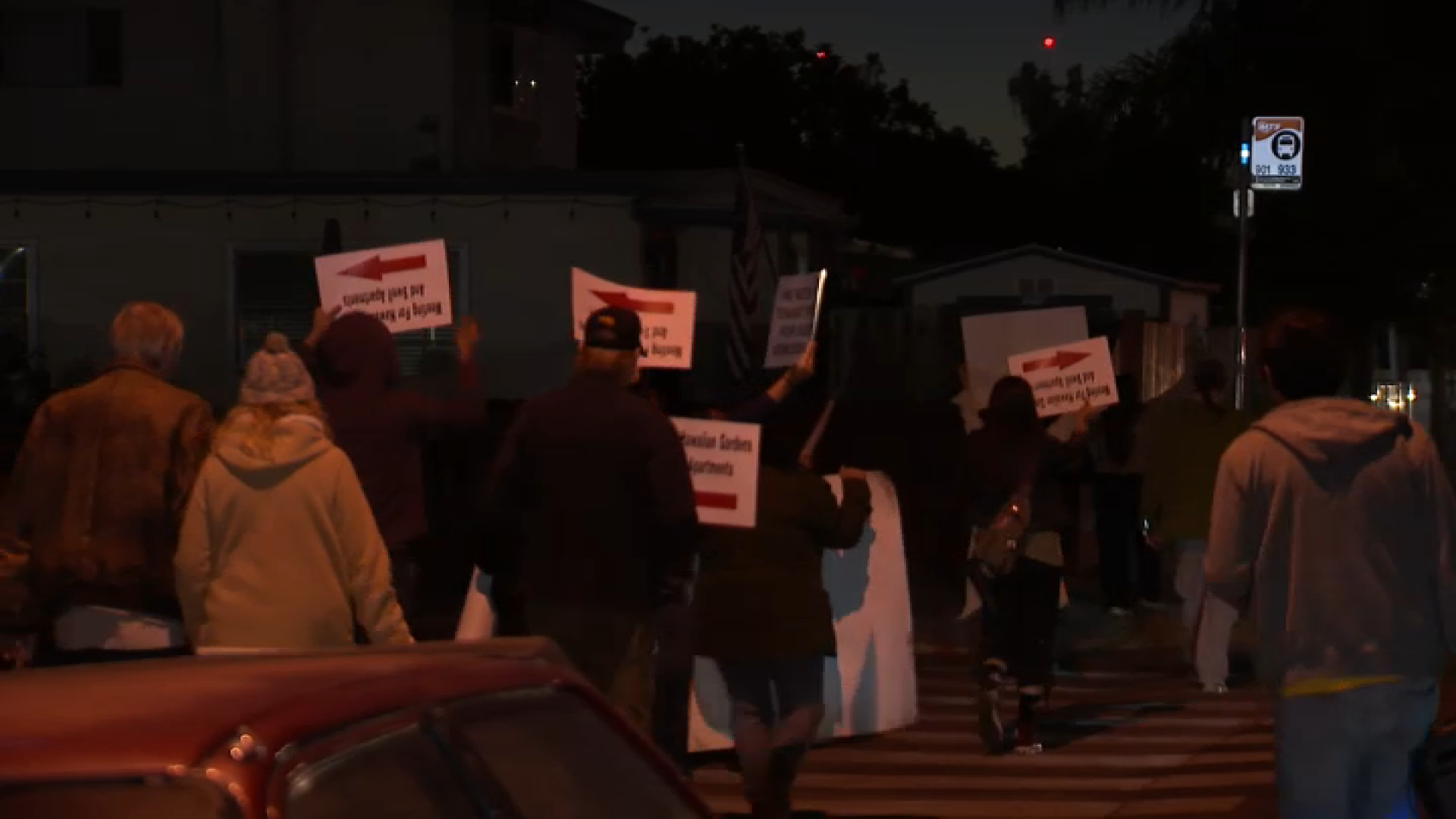Construction crews broke ground Thursday on a multi-million-dollar project that will bring miles of bike lanes to San Diego's downtown neighborhoods despite criticism from some members of the community.
The North Park/Mid-City Bikeways project will ultimately connect the University Heights, North Park, Normal Heights and Kensington-Talmadge areas through 13 miles of buffered bike lanes and traffic circles meant to increase safety for cyclists.
On Thursday, two portions of the seven-part project will begin: the Georgia-Meade Bikeway will run along portions of Georgia and Florida streets and Mead Avenue; and the Landis Bikeway will run along Landis Street.
The goal is to make it safer and easier for cyclists to navigate through the dense downtown-area communities.
Bicyclists attending a SANDAG sponsored ride to kick off the event were excited about the development to come.
“I want to support the project, I’m a big cyclist in the community and I use all the bike routes,” said David Santos, one of the SANDAG riders from University Heights.
“Always need to see new bike infrastructure coming to the city,” he added.
Local
But some community members are worried more bike lanes will mean fewer parking spaces.
“Terrible idea! Getting rid of parking in favor of bikes? No, you need more parking. And the bikes will fit in, easily,” said Landis Street homeowner Mark Atwood.
SANDAG’s Bikeway Corridor Director Linda Culp told NBC 7 this first 6.5-mile stretch will eliminate about 200 parking spaces, approximately two parking spaces per block.
“We do a lot of design work to avoid, to minimize the number of parking spaces we’re going to take,” said Culp.
“Those 200 spaces for our project area here, a lot of that is due to safety; these are older neighborhoods, older intersections,” she explained.
The Landis project calls for eight roundabouts and a switch to reverse angle parking along Landis street.
The North Park/Mid-City Bikeways are part of the San Diego Association of Government's (SANDAG) Regional Bike Plan Early Action Program (EAP), a larger effort to connect the county through 77 miles of new bikeways.
Construction on the Landis and Georgia-Mead projects will be completed in 2022, according to SANDAG.
About $15 million of SANDAG's $200 million EAP budget is being spent on the Landis and Georgia-Mead portions of the project along. TransNet, the regional half-cent sales tax for transportation projects, is funding the EAP.



